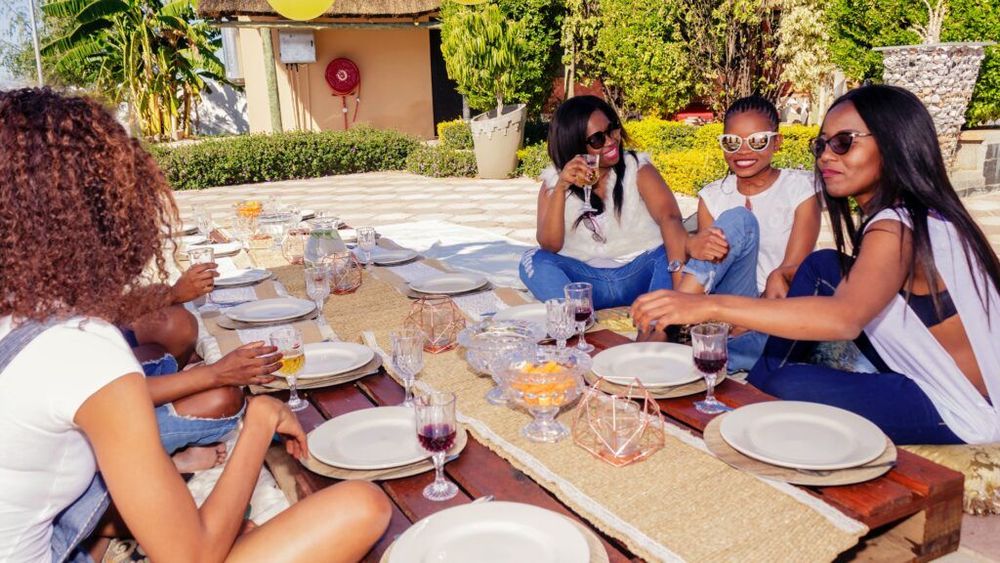How to tie your culture in with veganism: Vegans of Colour
Having trouble with the whole veganism vs. culture thing? Don’t worry! We’ve got your back! Here are 5 tips that can be used to tie your culture in with veganism!
Whether you are Caribbean, Asian, African, Middle Eastern, Latina; no matter what your ethnic background is, we understand it can be difficult to adjust to the vegan life with so many limitations around our cultures - especially if the culture is heavily influenced by meat or animal-derived products.
Get creative
Substitute meat/fish for alternatives like potatoes, veggies, beans and pulses. You show them where you get your protein! It’s very easy to substitute meat; it may be hard for new vegans, however as you slowly progress, it becomes something natural: eventually it no longer feels like substituting at all!
Blend up some veggies; boil some lentils and potatoes, maybe even use protein-packed alternatives like seitan or soy. Add it to the dishes you love, season your food and play around with textures! Start to enjoy the process and create a relationship with the food you eat.
Research into natural and vegan cosmetics for your specific type of skin and hair type
Hair and skin can be a pretty big factor, but a little research can go a long way. There are many affordable, vegan and cruelty-free products such as Cantu hair care line & The Ordinary & Sukin skincare line. Shea butter, cocoa butter and rosewater are all great cheaper options as vegan moisturisers for the skin and hair!
Look at ingredients in detail, not only checking that they are vegan but also make sure that they truly bring benefits to your skin in the long run. Try multiple routines and find the right one for you, this is especially important for kinky/curly hair types or those of us with a darker skin tone.
Follow Cassandra Bankson, she showcases the best vegan skin care products your face and body can absorb. Become a vegan ‘skintellectual’.
Buy some vegan cookbooks around your culture (or even regular cookbooks and substitute the meat)
Vegan cookbooks such as Original Flava’s Caribbean vegan cookbook Natural Flava by Craig & Shaun McAnuff has an array of mouth-watering Caribbean recipes. Another great book is Eat Feel Fresh – a plant-based Ayurveda cookbook by Sahara Rose Ketabi. Cookbooks are very good for getting some inspiration around your cooking and do wonders for helping you find the most convenient recipes for the week. This broadens the spectrum of playing around with your food while adding your own cultural authentic twist.
Whatever you choose to cook, make sure you’re comfortable eating it! As much as we want to keep our meals as authentic as possible, don’t be afraid to follow a cookbook and perhaps add your own seasonings to adjust the meal to your palette.
Watch Youtubers, read blogs and go to events (online or in-person) to learn more about adjusting to veganism within your culture
There’s something for everyone! Getting information about food, cosmetics and your wellbeing throughout your vegan journey is very important, especially when it comes to specific cultures and perhaps being in an area where certain items aren’t easily accessible.
Try a quick Google or YouTube search, ‘(Insert country) vegan food’ or ‘Vegan products for curly/kinky hair’ or ‘Vegan online seminars/zoom’.
Maybe have a look on Eventbrite at vegan events near you. Sometimes there are physical events such as cooking classes, talks, skincare & beauty classes, fitness & much more. Looking into blogs, videos and events will expand your possibilities and vegan journey.
Remember your veganism doesn’t make you any less authentic than anyone else
Take pride in your veganism and if it’s not traditional, make it a part of your tradition by adding small things to suit you. After all, authenticity is a very fine line. ‘Authentic’ is different for everyone: stay fully aware and remind yourself that you are taking part in your own culture in a way that doesn’t harm anyone or anything.
We have all received some form of criticism on our vegan journey, where someone has mentioned that we are no longer a part of our culture - they try to strip us from our ethnic background, in my case they comment that, ‘You are not a Jamaican anymore’. That’s simply not true.
You know who you are, don’t forget that! Encourage yourself through this journey!
If the interplay of religion and veganism is intriguing to you, check out is a Buddhist diet vegan? It’s more complex than you'd think.
